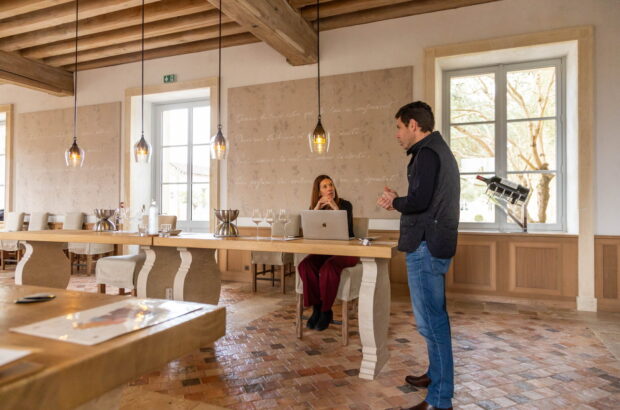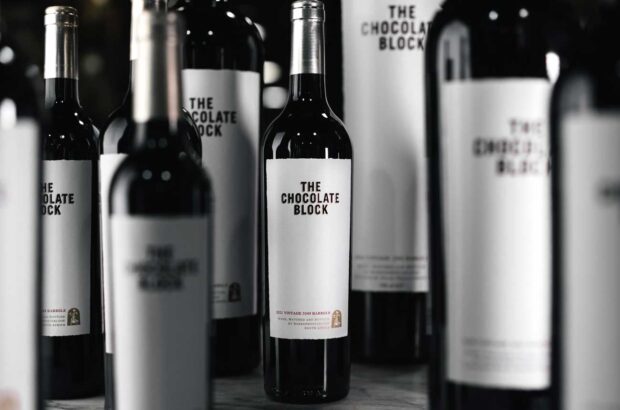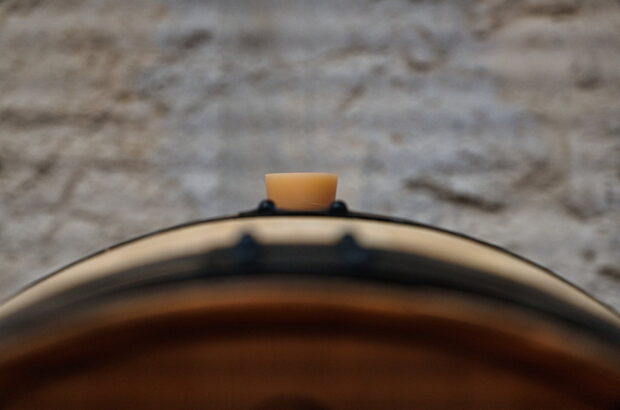He was 23 at the time, making his first steps with the family company, unknown in the UK; I was 31 and trying to get a new career going. I met him in Portugal; he became my first wine friend. I got to know his family, and he mine; we learned and explored together.
His father Rolf ran the business – effectively; though he seemed more interested in his collections of corkscrews, antique firearms and American cars than in wine. Dirk’s flat was full of old typewriters. Ceramic frogs covered every available surface in the family home. The Niepoort lodges were exactly what you’d expect from a family of collectors: full of cobwebs and curiosities. Colheita Ports were a novelty for the time in the British market, so the Niepoort stock of those was magnetic; some were decanted into demijohns for long ageing and called garrafeiras.
Like all good collectors, the Niepoorts sold reluctantly. We tiptoed into stocks of the 1900 and 1931. Then, emerging from the cobwebs, Dirk drove me out of the narrow Vila Nova de Gaia streets in his 1969 Chrysler Newport. I admired his easy, confident manner and uncomplicated pride in this ridiculous slab of a vehicle. He celebrated it like a ’69 colheita.
The Dirk method of learning about wine was tripartite. Part one: accept nothing, reverse every theory, put its opposite to the test. The second part was to play around in general and make a big mess. And the third was not to stop until everyone else was exhausted.
Days with Dirk would begin with a wild breakfast in which eggs would collide with whatever happened to be littering the kitchen (dried abalone, spinach, gherkins, anchovy essence, balsamic vinegar); we’d be tasting wine shortly afterwards.
There’d be visits and long drives – he was, astutely, sniffing around for a wine farm or two to buy at the time. Meals in rough dockside or roadside restaurants were to follow, where the wine came in tumblers; then evenings with rock’n’roll friends. We’d still be tasting – and drinking – at midnight.
He began an audacious series of self-educational road trips in cars and on motorbikes around different wine regions of the world, Australia included; from time to time he’d telegraph back his enthusiasms, as well as his disappointments. Bottles would be shipped to Oporto for what became a chaotic and constantly plundered wine collection.
Dirk’s look, and life, began to assume rock’n’roll dimensions of its own. He got bigger; the corkscrew-curled hair got longer; intimates and collaborators came and went; he started projects with fearless abandon. The curious kid I knew turned into a kind of pan-European wine-creating guru, shadowed by followers and fans, collaborators and enablers. It helped that his palate seemed to catch the post-Parker zeitgeist: early picking for lightness, freshness, incision, lower alcohol; an easy kinship with the natural-wine groove.
Dirk’s an imaginer, an experimenter, a disruptor. It’s rare in this structurally conservative milieu. The safe way to advance in wine is to march out in drill formation from within Fortress Tradition. Dirk never took the safe way. He hitched, he biked, he climbed, he abseiled, he roared off-road. Who else, other than Dirk Niepoort, would produce a ‘Clos de Crappe’ (‘technically a disaster, but full of passion and expression’)? Yet Niepoort wines such as Turris and Museu dos Lagares are among Portugal’s most prized; the company’s vintage and colheita Ports challenge the best. Meanwhile, around 1.7 million bottles of wines and more modestly priced Ports are sold under the Fabelhaft brand each year.
I’m still here – but he’s gone further. My first wine friend turned out to be the most imaginative European wine creator of his times.
In my glass this month
Niepoort, Quinta do Baixo Vinhas Velhas, Bairrada 2019 is made from centenarian Bical and Maria Gomes (Fernão Pires) vines growing in limestone. Give the aromas time and you’ll find hawthorn flowers and honey: shy but enticing. On the tongue the wine shocks: mesmerising and intense. It scours and scurries; rewarding yet confronting in equal measure. (That’s Dirk, too – now I remember our arguments.) And then it’s gone, cleanly. As dramatic as a blast on a whistle.













